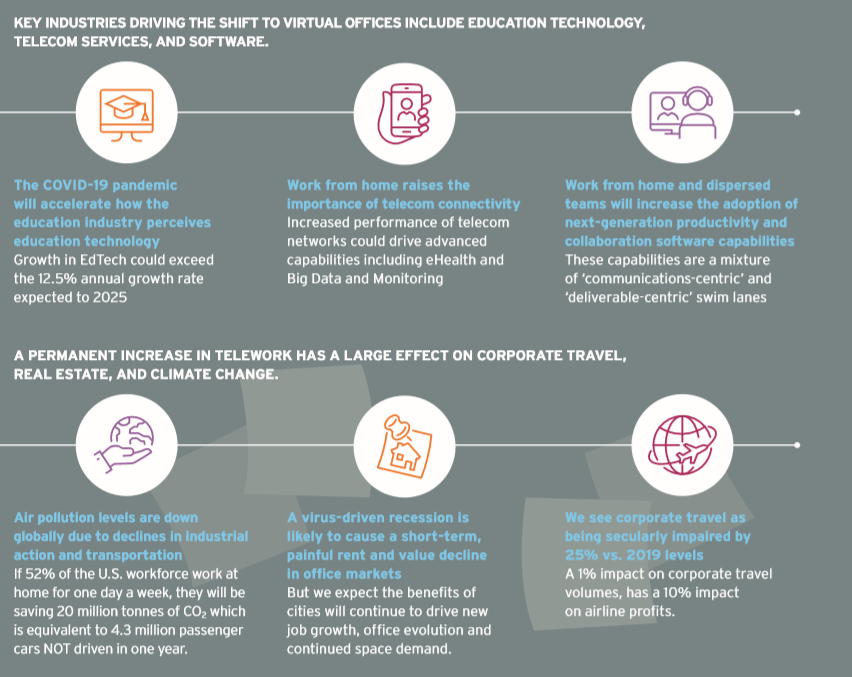#1. 75% of Gen-Z’ers believe COVID-19 will lead to new career opportunities
A new survey of 1,000 13-17-year-olds reveals that Generation Z feels optimistic about the future – and that’s despite COVID-19! 75% of those surveyed said new careers would be created as a result of COVID-19 while further 66% believe their generation will be more likely to work freelance jobs than past generations, writes Mark C. Perna for Forbes. Almost half of them (45%) do not expect to change their career plans due to the pandemic, but about a third (34%) believe COVID-19 will lower their income over their lifetime. When it comes to life plans in general, the youngest generation does not seem to be affected much by recent months. 73% said they feel the pandemic will not negatively affect their ultimate success and happiness.
.jpg?h=683&iar=0&w=1024&hash=EC2FF879BF50417E7BE8646397A4CF09)
#2. Apprenticeships in the UK ‘are not delivering social mobility’
The apprenticeship system is failing disadvantaged young people in England. That’s according to the Social Mobility Commission report published earlier this week. Before COVID-19, which, if anything, has made things worse, there was a 36% decline in people from disadvantaged background starting apprenticeships, compared with 23% for other groups. Furthermore, the report highlights that, on average, apprentices from underprivileged backgrounds earn less than those from non-disadvantaged backgrounds.
.jpg?h=683&iar=0&w=1024&hash=C92EC572D7C377185EBC4262B27AEF1F)
#3. Being an independent self-starter: the one quality CEOs look for in remote workers
According to CEOs and heads of departments, the one quality that’s really going to get you hired as a remote worker is this: being an independent self-starter. Fred Schebesta, CEO and founder of Finder.com.au, a comparative website, said that when hiring for a remote position, he’s looking for “someone who is proactive and innately driven to do great things”. This quality is important because as Andrew Maloney, CEO and founder of Student Super, Australia’s superannuation fund explains, “it’s much easier to take an existing team that has worked together in an office, and then move to work remotely”. They already know the culture and know how to interact. But this does not apply for someone who has never worked in the same office. For fully remote workers, then, being an independent self-starter is a must. Read more here.
.jpg?h=683&iar=0&w=1024&hash=18CB1F0410361ADEBC8AB7FA65460B58)
#4. Some businesses are paying for their workers’ home offices
The world is slowly coming to terms with the new era of work built around more flexibility and remote work. But not all is as straightforward as it seems. For instance, how do you make sure your employees have the right equipment at home to be able to work remotely? It turns out that many businesses are planning to offer stipends or one-off payments to their employees to help them set up workstations at home. Among others, e-commerce company Shopify or Twitter have previously committed to pay $1,000 to every employee working remotely. In Switzerland, in the meantime, companies are obliged to also pay part of employees’ rent if they are expected to work from home. This is according to a federal court decision taken earlier in May.
.jpg?h=683&iar=0&w=1024&hash=D0A2402A01DEB09103395FC7D7952599)
#5. What to expect from the future of work: New research identifies five trends
Citi, one of the world’s largest financial institutions and the University of Oxford have published a report Technology At Work v5.0 – A New World of Remote Work. In the paper, they identify five trends prompted by the remote work revolution that will change the way we work in the future:
-
First, the COVID-19 pandemic has accelerated the transition to remote working, which will, in turn, speed up the digital revolution and the upcoming rollout of 5G. This change will result in new jobs created in sectors such as telerobotics and augmented and virtual reality.
-
Second, this sudden shift to remote work has also highlighted inequalities in the workforce. To increase our resilience to such future disruptions, we need to innovate more.
-
Third, the adoption of education technology is expected to get a boost as people’s attitudes towards learning have changed.
-
Fourth, as reported previously, business travel is likely to decline. This is due to companies discovering the convenience of virtual meetings that will, at least for now, replace in-person interaction.
-
And last but not least, working from home has had a positive impact on the environment. Many people might choose to work from home in the future to reduce air pollution.




